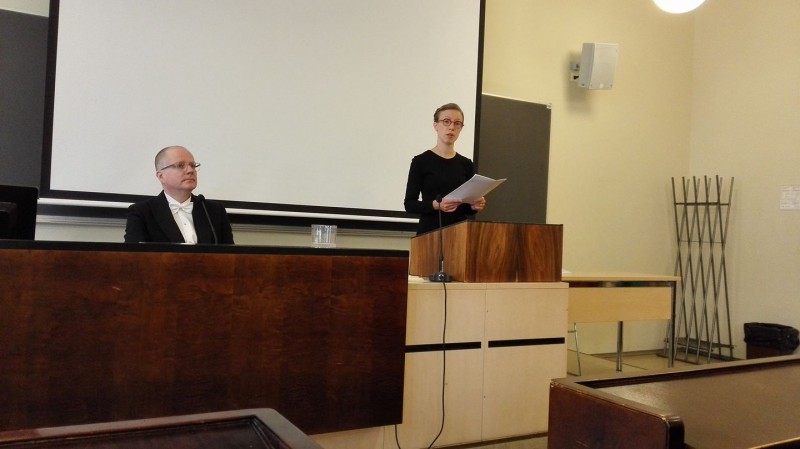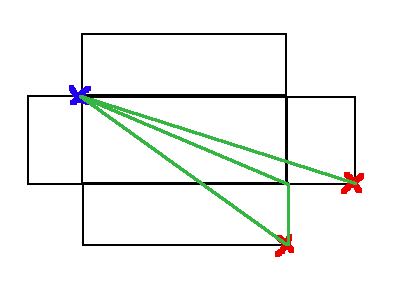A slightly embarrassing moment: something I’d done at work was being written up, and I was asked what my PhD thesis topic is (I haven’t completed any academic degree). This made me think of how unusual and hard to explain my working life is, although much in the way that newspapers have been saying everyone’s working life will be.
My main job is as a research assistant, which is a low-level job. Unlike in most low-level jobs, I do a variety of quite specialized tasks. I write code, I study and come up with ideas, I communicate with other researchers and people who want me to do something for them, I write (parts of) papers. The main part is “academic programming”, meaning programming where the number of users is quite low and expectations about usability and reliability are somewhat relaxed. So my job is quite varied and usually interesting, which I like. Low-level also translates to some extent to low pressure. I can mostly work independent of location.
The downside, I suppose, is the low status and remuneration. There isn’t really any way for me to progress inside academia, which is one reason why I also pursue other paths. For money, I’ve taught courses in specialist subjects, and lately I’ve been able to break into consulting. For on-site consulting I’m billing 100 euros an hour plus VAT (less for offsite work), which means my productivity can already be quite high. I get the impression it would not be very difficult for me to get recruited into the private sector for a “better job”.
At least for now, this sort of on-off mode where I can focus 100% for short periods of time but don’t have to be sustainedly productive 40+ hours a week is quite good. It suits some of my strengths, and probably more importantly, my weaknesses. I can burn out easily and get stuck on problems I don’t really want to or know how to solve. I’m sometimes completely unable to go through necessary formalities. A higher status job would not be very forgiving of those traits. People who don’t have my weaknesses can get compensated a lot better than I can, but that’s just one bit of bad luck I have. Everyone has flaws. I have had lots of good luck too.
I wouldn’t even mind doing some of my old jobs on occasion, tutoring and translating, where the pay can be ok if you pick and choose jobs and can work fast. In general, any odd job that happens to suit me. Like my highest-paid (by the hour) work I’ve ever done, voice work for the metal band Nightwish, a job I had no previous experience with and happened quite randomly. I can’t resist quoting from a Nightwish band biography:
“I had an idea of a song with a young boy reciting a poem,” Tuomas says. “The trouble was that no Finnish twelve-year-old could pronounce English right, so I had to find a native speaker. My mother’s sister, actress Miitta Sorvali, knew the English-Finnish director and writer Neil Hardwick well, and my mom remembered that Neil had a son called Sam. I called him and asked him to do the poem, and Sam agreed right away. It was just funny that when I talked to this fifteen-year-old boy, he seemed like such a citizen of the world, and was actually familiar with our band. Sam said he’d be free to record the poem anytime, I just had to give him a call. He even knew where Finnvox [studio, I actually had to look it up -SH] was, and promised to meet us there.”
The professionalism of young Sam Hardwick made a deep impression on Tuomas. “When he arrived at the studio, I had to ask him to wait for ten minutes or so. He just pulled a book from his pocket and sat down to read,” Tuomas says. “I gave him the poem, and he read it through a few times. We did some editing, and Sam just sat down on the studio floor and read his book, after which I asked him to read the poem a couple more times.”
“When I started talking about his reward, he wouldn’t hear anything about it. He just said, ‘That’s okay, it was fun.’ I insisted on giving him at least a couple of hundred Finnish marks [I think it was 500 -SH], and then he left. A very puzzling young man, but a real pro and a very nice person. He later did the beginning of ‘Bless the Child,’ too, and once again everything worked like a charm. [This time I got paid a fair bit more -SH] ‘Dead Boy’s Poem’ continues to be a sort of a signature song for Nightwish. After Wishmaster came out, the song was voted on our web site as the best Nightwish song ever. There’s certainly something about it that defines us, and—for me at least—the poem is the absolute high point of the song. So Sam Hardwick made a big contribution to our music.”
Ideally I’d like to just keep learning stuff and do something really valuable once in a while when the problem and setting is right for me. For that to happen, I’d have to be paid more like 500 euros an hour for consulting, which is probably not realistic.
In itself, low pay isn’t such a terrible thing for me. I was lucky to be born to successful parents, have practiced frugal living for a long time, and can substitute some investment returns for income. If I hadn’t sabotaged my financial life by having children, I’d be more than ok. Spending money doesn’t much increase happiness for me, rather the opposite sometimes. In fact, the plan is for the amount of salary I need to keep going down, due to increasing returns from investments and learning more and more about how to live cheaply. Ultimately, I would like that amount to go to zero (“financial independence”).
Overall, you could say I don’t really have a “career plan”, but I feel I have a pretty decent “life plan”. It has some risk of failure, but so do more conventional life plans.

























